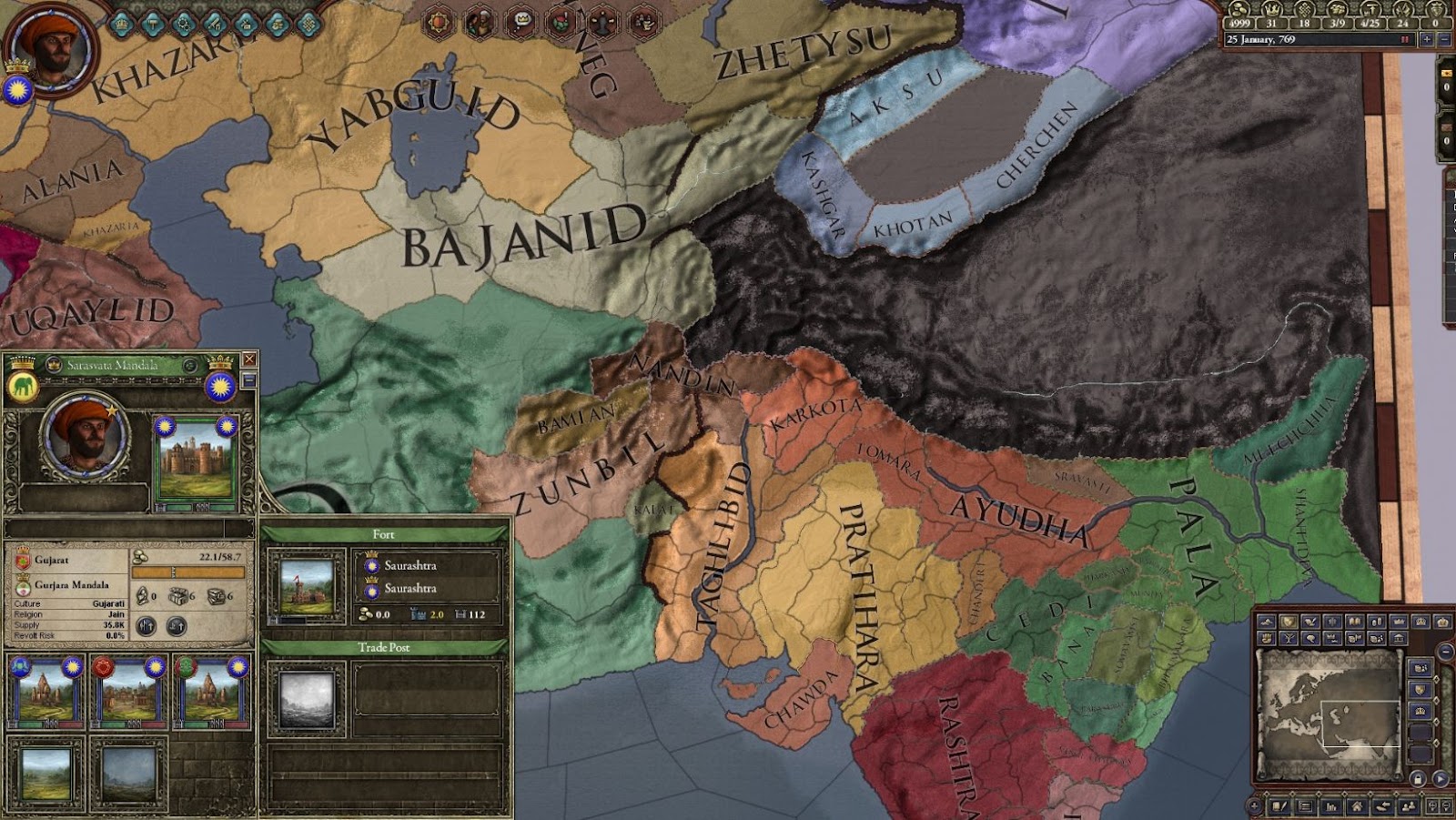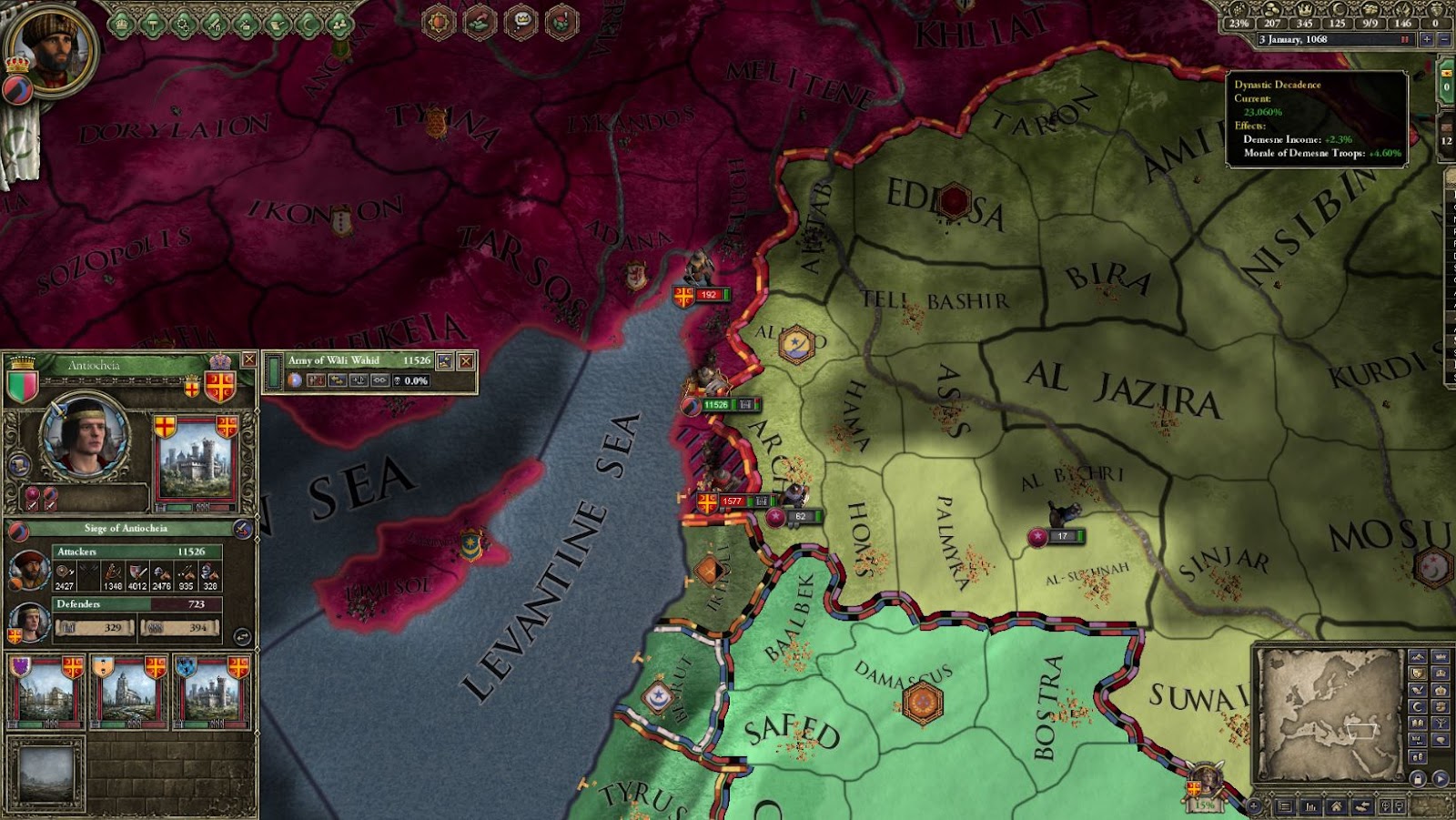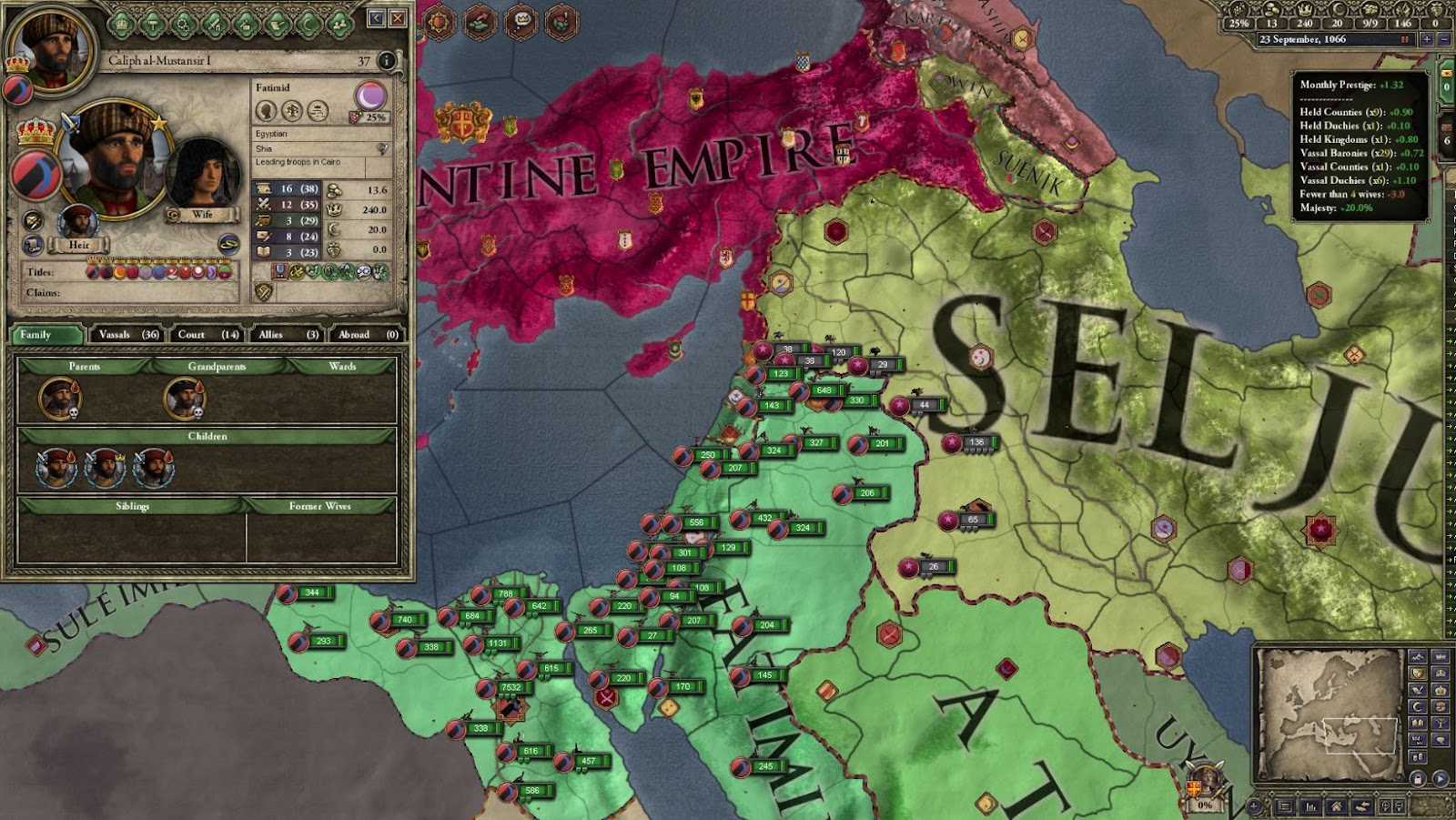
This game features intricate systems of politics, warfare, religion and economics revolving around succession. Know the different types of succession laws for the best outcome.
Manage family relationships wisely, make strategic marriages and produce heirs with desirable traits. Don’t forget to balance the needs of vassals, religious leaders and other key figures – all while maintaining authority.
Remember, this game is also about people and relationships. Develop characters with personalities and quirks to make the game even more enjoyable. Time and effort are required to master Crusader Kings 2, but it offers a rewarding experience.
Don’t miss out on this regal experience!
Making Your King Move
To make your king move with finesse in Crusader Kings 2, understand the importance of character traits, build alliances, choose factions wisely, balance your demands and resources, and utilize marriage and inheritance. This section delves into the intricacies of making strategic decisions while playing the game, breaking down the sub-sections for a comprehensive understanding.
Understanding the Importance of Character Traits
Personality Traits: An Insight
Personality traits shape an individual’s actions and decisions. It’s a set of characteristics, behaviors, and thinking patterns. Knowing these traits helps you build relationships with others and grow. It can also improve communication style, attitude towards work, and problem-solving approaches.
The level of emotional intelligence plays a role in personal success. Low levels can be an obstacle, while high levels can bring positive changes.
Remember, personality traits are not fixed, but cultivated through experiences and upbringing. Therefore, it takes time and effort to change them. Tracing back to Hippocrates (400 B.C.), research on human behavior has undergone many changes. Today, the Big Five Personality Dimensions – Openness, Conscientiousness, Extraversion, Agreeableness, Neuroticism – are the core principles held by modern perspectives.
In the game of political alliances, it’s not about who you know, it’s about who owes you.
Building Alliances and Choosing Factions
Do your research on each faction’s strengths and weaknesses. Think of your strategy and pick a faction that works best with it. Link up with players who have similar strategies. Talk openly with them to create trust and agree on objectives. Be ready to switch alliances if needed as the game progresses. Monitor the balance among factions and players too.
Don’t rely on emotions or bias when making alliances – use a planned method which blends individual abilities with appropriate partners for success. Remember, forming alliances need trust and communication – invest effort into these two areas for a stronger bond.
Achieving the correct balance between asking a lot from yourself and not going crazy is like playing chess against a stubborn challenger.
Balancing Your Demands and Resources
To optimize performance, demands and resources must be balanced. Assess task complexity and energy needs before taking it on. Evaluate skills, capacity and limits to make informed decisions. Prioritize tasks based on urgency and benefit. Analyze options to understand capability.
Maintain balance by monitoring demands and resources.
Once, an exec was in high position but overloaded himself–burnout! So he changed his strategy: prioritized tasks based on urgency and importance. Efficiency increased due to better-balanced methodology. Who needs a prenup? Play a game of chess to determine inheritance!
Utilizing Marriage and Inheritance
Marriage and Inheritance can help your King’s moves in chess. Strategically using them can bring great advantages. Check out the table below to see the pros and cons:
Marriage Alliance Get local support/resources Can cause family issues
Inheritance Rights Gain assets/power Complex legal stuff
It’s important to note that every situation is different – research well before moving.
You should also consider specific things such as land, neighboring kingdoms, and political standing. These can give you an edge.
Don’t miss out on potential benefits that come with smart strategic thinking! Explore all your options before you make your move on the chessboard. Winning territories is like chess – each move can bring you closer to victory or total failure.
Conquering Territories
To easily conquer territories in Crusader Kings 2, formulate a strategy, build your military strength, choose the right time to strike, negotiate surrenders and alliances. These sub-sections will guide you on how to deal with your enemies and allies, make calculated moves, and succeed in expanding your kingdom to its fullest potential.
Formulating a Strategy
Developing a Winning Plan
Planning is essential for taking over unknown lands. Collect all the info you can about the area to make a good strategy. Think about resources and any potential problems. Analyzing opponents can reveal opportunities and weaknesses.
Prioritizing objectives that fit with the organization’s goals is important. Set up KPIs to measure progress and take small steps to reach them. Make sure everyone knows their role and what is required of them.
Taking over unexplored areas needs forethought and decision-making. Learn from successes and overcome failures. But, to be victorious, you need a powerful plan – stronger than your ex’s perfume!

Crusader Kings 2 How to Become King
Attaining Domination Over Realms
To gain control of lands, one needs to create a formidable military. A strong army can conquer and seize new territories.
Below shows what elements construct a strong military:
Training Programs Regular training to better troops’ skills
Equipment Weapons, vehicles, communication systems, and other items for maximum success
Intelligence Gathering Accurate info about the enemy’s strengths and weaknesses
Strategy A well-thought-out and executed plan, reflecting different attack styles depending on the battlefield.
Although there are standard steps, creativity can modify them for superior results. The art of warfare contains unique combinations that depend on various factors such as terrain difficulty, weather, etc.
Sun Tzu’s ‘The Art of War’ states that the celebrated general Hannibal Barca led his forces through uncharted areas. Despite the harsh weather, he marched with elephants through snowy Alps rather than taking the expected paths to Rome. Hannibal’s boldness was essential in securing a remarkable victory. When it comes to conquering realms, timing is everything – like aiming to score in soccer, you must choose the precise moment to kick.
Choosing the Right Time to Strike
Timing: The crucial ingredient in territorial conquest.
To succeed in conquering new lands, one must carefully choose the right moment to act. Conversely, a well-thought-out and impeccably timed attack can swiftly seize control.
First, assess your resources and enemy capabilities. Then, identify weaknesses and predict their forthcoming moves. This data can tip the balance in your favor, enabling you to take advantage of the situation. But, timing is not always unmistakable. Therefore, be observant and monitor all pertinent variables that could influence the outcome; such as climate, region, and shifts in enemy attitude.
Pro Tip: Monitor the target region for signs of fragility or frailty, yet be patient until everything aligns with your plans.
Alliances are like marriages: they start with pledges and end with attorneys.
Negotiating Surrenders and Alliances
Successful territory conquest requires alliances and surrenders. Diplomatic maneuvers play a key role in a peaceful transfer of power. Negotiations need two common goals and mutually beneficial terms.
Conflicts start with uprisings. Leaders assess their forces to pick a course. Then, leaders offer rewards or concessions; sometimes they use arranged marriages. Genghis Khan is famous for strategic marriages. His daughters married other leaders, increasing his tribe’s influence in Asia.
To keep your kingdom safe: keep your enemies close and your Netflix password closer!
Maintaining Your Kingdom
To maintain your kingdom in Crusader Kings 2, you must understand how to manage your relationships with vassals and keep your heir and succession in mind. Managing your demesne and dealing with rebellions and revolts is also crucial. In this section, you’ll learn about these sub-sections as solutions to maintaining a successful kingdom.

Maintaining Relationships with Vassals
Managing Your Demesne: It’s Like Owning a Houseplant!
Managing your demesne is like owning a houseplant. You must water it, give it sunlight, and make sure it doesn’t die. Except your demesne is bigger, with more people depending on you!
Maintaining Ties with Vassals
For success in your kingdom, having good relationships with your vassals is essential. Communication and openness are key. Meetings can help you understand their needs and share expectations. Delegate responsibilities that match individual abilities, but hold them accountable.
Provide incentives for loyalty or good service. Punishments should be fair and consistent. Exchange of ideas between you and your vassals can lead to innovative solutions, benefitting all in the kingdom. Uphold the oaths made to vassals during induction. Instead, acknowledge their contributions – this will foster pride in both parties and ensure sustained prosperity.
Collaborate and Criticize Constructively
Vassals should work together and criticize constructively. Support each other’s endeavors and deliver criticism carefully. Address grievances with empathy and an open mind. Find a resolution suitable for all.
Managing Your Demesne
To effectively maintain control over your land, assess the current condition and available resources. Understand your land, resources, and personnel to spot potential areas for development. Communication between personnel is key for coordination. Delegate duties while monitoring productivity levels for maximum output. Implementing advanced technology like automated systems can help speed up work processes and result in better outcomes with lower costs.
In medieval Europe, lords managed lands themselves or delegated to trusted acquaintances or relatives, thus securing loyalty. Remember, choosing an heir is like picking your favourite child, but mistakes can have disastrous consequences.
Keeping Your Heir and Succession in Mind
Ensuring your legacy lasts requires foresight for the next generation. Prepare your heir by instilling values, teaching skills, showing them diverse cultures, and developing their character.
Set up a plan in case of an unforeseeable event. This could be a disagreement between family members, or a coup. Have an authoritative protocol to protect against a loss of control and keep prosperity.
Many monarchs appoint regents. These are trusted advisors who lead when needed.
Be ready for future events and contingencies. Plan, educate, delegate, and establish protocols. This will ensure your realm thrives beyond your reign.
Remember, if you can’t beat ’em, join ’em…and then overthrow them from the inside!
Dealing with Rebellions and Revolts
Contend with uprisings? Have a strategy! Increase legitimacy, show capacity to maintain order and restore justice. Prevention is the best defense. Supportive systems meeting desires and efficient administration allow detecting opposition and taking measures. Communication is key when handling rebellion- keep dialogue open. Objectively analyze causes of unrest. Offer solutions both sides agree on. If violence has broken out, de-escalate without compromising.
Stay informed of other kingdoms’ experiences with uprisings- learn from mistakes. King Tutankhamun got it right: he faced unrest from powerful advisors, but understood their demands and motivations. He maintained diplomatic relationships while reinforcing royal authority- avoiding another uprising.









